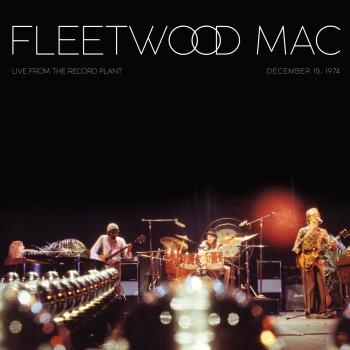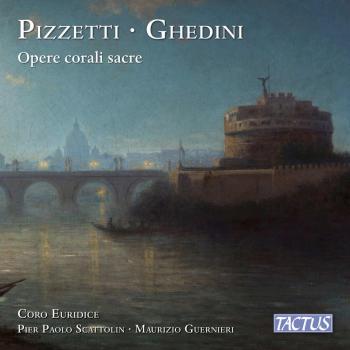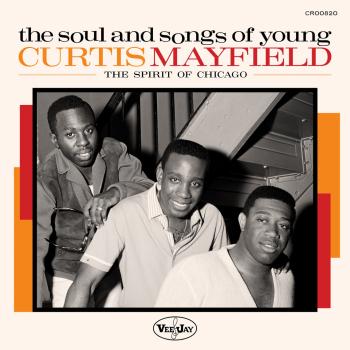
J.S. Bach: Goldberg Variations, BWV 988 Peter Hill
Album info
Album-Release:
2018
HRA-Release:
18.05.2018
Label: Delphian
Genre: Classical
Subgenre: Instrumental
Artist: Peter Hill
Composer: Johann Sebastian Bach (1685–1750)
Album including Album cover Booklet (PDF)
- Johann Sebastian Bach (1650-1785): Goldberg Variations, BWV 988:
- 1 Aria 03:48
- 2 Var. 1 01:59
- 3 Var. 2 01:39
- 4 Var. 3, Canone all'unisuono 02:37
- 5 Var. 4 01:07
- 6 Var. 5 01:09
- 7 Var. 6, Canone alla seconda 01:15
- 8 Var. 7 02:36
- 9 Var. 8 01:54
- 10 Var. 9, Canone alla terza 02:16
- 11 Var. 10, Fughetta 01:46
- 12 Var. 11 02:10
- 13 Var. 12, Canone alla quarta 03:34
- 14 Var. 13 04:14
- 15 Var. 14 02:04
- 16 Var. 15, Canone alla quinta 05:01
- 17 Var. 16, Ouverture 02:50
- 18 Var. 17 01:35
- 19 Var. 18, Canone alla sesta 01:29
- 20 Var. 19 01:43
- 21 Var. 20 02:03
- 22 Var. 21, Canone alla settima 02:39
- 23 Var. 22, Alla breve 01:12
- 24 Var. 23 01:48
- 25 Var. 24, Canone all'ottava 02:23
- 26 Var. 25 08:34
- 27 Var. 26 01:05
- 28 Var. 27, Canone alla nona 02:18
- 29 Var. 28 02:49
- 30 Var. 29 02:02
- 31 Var. 30, Quodlibet 01:56
- 32 Aria da capo 02:54
Info for J.S. Bach: Goldberg Variations, BWV 988
In the Goldberg Variations Bach answered a modest request – reputedly from an aristocratic patron who wanted music that was ‘soft and somewhat lively’ as a distraction from insomnia – with a work of immense scale and ambition, a great musical journey that traverses a dazzling kaleidoscope of musical styles. The music’s wit and virtuosity is matched by the exquisite contrapuntal tracery of the canons that form the work’s backbone, and by the tragic grandeur of the minor-key variations, which contain some of the most poignant music Bach ever wrote; the homecoming, as Bach ends by returning to the opening Aria, is one of the most moving passages in all music. Peter Hill here continues his acclaimed series of Bach recordings with a searchingly imaginative performance, capturing the music’s zest and its depth of feeling in a reading that is as profoundly poetic as it is beautifully coloured.
Hill’s 6th recording for Delphian, captures the artist at the very height of his powers.
Peter Hill, piano
Peter Hill
Hill read music at Oxford gaining a Master of Arts degree, during which time he studied piano with Cyril Smith. He then continued his piano studies at the Royal College of Music with Cyril Smith, gaining the Chappell Gold Medal. Whilst at the Royal College of Music he also studied with Nadia Boulanger in Paris, who described him as ‘…a born artist, a beautiful natural talent’. Hill has always been interested in contemporary music. He has said, ‘The turning point of my life came when I was about fourteen, when I discovered “real” twentieth-century music, via Schoenberg’s piano music which I came across in a shop in Winchester… What I discovered was that just playing a major seventh softly was extraordinarily beautiful and I played those pieces with a kind of missionary zeal.’ He was awarded a first prize at the International Centre for New Music in Darmstadt for his playing of Cage and Stockhausen, and was a founder member (with Douglas Young, Kathryn Lukas and Rohan de Saram) of Dreamtiger, the ensemble devoted to organising concerts of contemporary music. Hill has appeared at many international music festivals including Bath, Harrogate and Stuttgart, and since 1976 has broadcast regularly for the BBC making nearly one hundred programmes; these include the recording of the complete piano music of Schoenberg and the complete solo piano music of Messiaen. In 1992 Hill took a research fellowship at Royal Holloway College on Xenakis, but was not inspired by this composer. He has given many first performances by contemporary British composers and appears in recital with violinist Peter Cropper whilst his duo-pianist partner is Benjamin Frith.
Hill is head of the department of music at the University of Sheffield where he teaches courses in performance practice, Messiaen, Stravinsky and Beethoven. His book The Messiaen Companion, published in 1994, indicates his affinity for the French composer, a composer with whom Hill studied and of whose music he has made authoritative recordings. As well as writing articles for the Musical Times and Tempo magazine, Hill has also published a book on Stravinsky’s The Rite of Spring and has given extremely illuminating lectures on the history, performance and recording of this work.
Hill made his first solo recording, of piano music by Havergal Brian, in 1982. In 1990 he recorded one of the peaks of the piano repertoire with Beethoven’s ‘Diabelli’ Variations Op. 120. Like most of his discs it was favourably reviewed, and for his understanding and complete grasp of its overall structure is one of the best available versions of this monument of the piano literature. As with many of his recordings, Hill provides a penetrating and thought-provoking booklet essay.
However, Hill is predominantly known for his recordings of twentieth-century music, especially his critically praised seven-disc cycle of the piano music of Messiaen on which he received guidance from the composer. These recordings for Unicorn-Kanchana were hailed as ‘…one of the most important recording projects of recent years’ by the New York Times, putting Hill at the forefront of Messiaen interpreters; they have recently been reissued on the Regis label. His more recent discs have been made for Naxos for whom he is recording the complete works of Stravinsky. A disc which includes the Three Movements from Petrushka was highly praised, Fanfare magazine stating, ‘The work is almost impossible to play, and Hill – not noticeably taxed – bounds and prances through it with real élan.’ Of the whole disc, the critic concludes, ‘The playing is superb and highly enjoyable.’ The Gramophone magazine found Hill’s ‘…cool detachment and scrupulous observance of the notation works well in the Sonata’, but not in the whole of the programme. A disc of Stravinsky’s works for two pianos with Benjamin Frith includes the The Rite of Spring, but it was Hill’s disc of Berg, Schoenberg and Webern that elicited the highest praise from The Gramophone. ‘These are scrupulously prepared performances… Where Pollini responds with near frenetic intensity and an excess of dazzling pianism, Hill probes with subtlety, sympathy and high intelligence.’ This disc was also selected as a recording of the year in Classic CD magazine and by The Sunday Times. One of the most under-rated of British pianists, Hill deserves a place in the front rank.
Booklet for J.S. Bach: Goldberg Variations, BWV 988











